Alaa Abd El-Fattah is an Egyptian writer, technologist and political activist. He has been prosecuted or arrested by every Egyptian regime to rule in his lifetime, and has been held in prison for all but a few months since the coup d’état of 2013. Collected in You Have Not Yet Been Defeated by his family and friends, for the first time in English, are a selection of his speeches, interviews, social media posts and essays since the outbreak of revolution in January 2011—many written from inside prison.
You Have Not Yet Been Defeated: Selected Works 2011-2021, by Alaa Abd El-Fattah
Translated by A Collective
Seven Stories Press 2022
ISBN 9781644212455
Fouad Mami
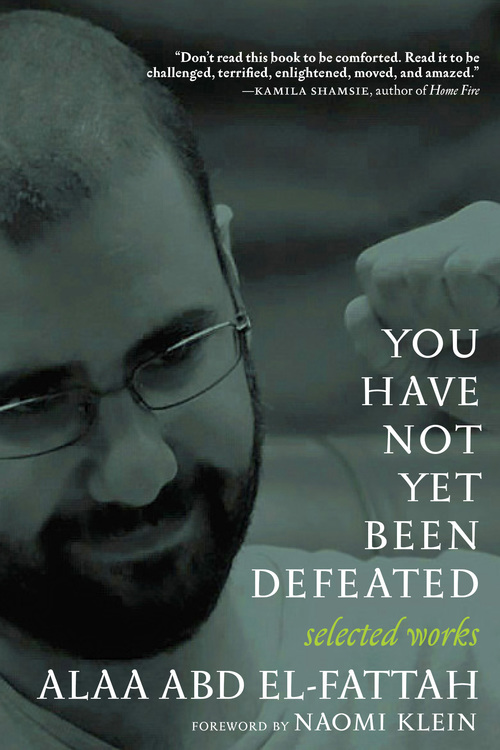
In some strange but equally sublime ways, You Have Not Yet Been Defeated recalls Antonio Gramsci’s classic, The Prison Notebooks, with Alaa Abd El-Fattah instantiating the anti-fascist revolutionary and theoretician of the Arab Revolutions! If the analogy with Gramsci is unappealing, then Abd El-Fattah’s interrogations recall the celebrious anti-Nazi German author, Carl von Ossietzky. Such is the closest and perhaps fairest portrait with which one might introduce Alaa Abd El-Fattah to the world.
I review here his book less to highlight its political engagements or logical formulations than principally because he admits he has been defeated. I prefer to leave aside Abd El-Fattah’s other preoccupations — such as constitutional activism or feud against the Muslim Brotherhood — not because these are minor or disfigure his public image, but simply because Abd El-Fattah’s thinking of them has evolved. It is easy for readers to notice how issues such as who has the right to write the constitution of the post-revolution and what has to be included in it or left out have been largely bypassed by pressing matters. These updates are understandably the unfolding of the counterrevolution and Abd El-Fattah’s extended incarcerations together with the general conditions of living in post-revolutionary Egypt.
As I write this review, Abd El-Fattah is both incarcerated and undergoing a hunger strike. The free world is outraged and has called for his immediate release. The Egyptian regime, Abd El-Fattah specifies in this book, is particularly notorious for hunger strikers. Lest we in the free world lose him, I find it particularly rewarding to dwell on what I deem both admirable and deep in Abd El-Fattah’s assessment: those elements that present and future activists need to embrace in order to carry out the struggle for establishing an egalitarian order, both in Egypt and elsewhere.
It is remarkable that while admitting defeat and being stripped of his basic rights at the hand of the notorious justice/injustice system of Abdel Fattah el-Sissi’s Egypt, Abd El-Fattah still manages to remind revolutionaries everywhere that while not incarcerated the way he is, they have not yet been defeated.
Abd El-Fattah’s book displays a selection of his texts, prefaced by none other than the admirable scholar and activist Naomi Klein, author of The Shock Doctrine: The Rise of Disaster Capitalism, among other tomes. The admission of personal defeat enforces the dismantling of the heroic and almost invariably male account that revolutions and revolutionaries always win even when they are squashed. This explains why that admission is both admirable and, as will follow below, critical.
Reading the book, it becomes self-evident that the author, despite his exemplary willpower, acknowledges personal failure for when given his prison conditions, he no longer has the strength to fight for his rights as a human being: the right to read, to use clean toilets, to sleep on proper bedding and so forth. Nevertheless, we understand that revolutions or the revolution for which Abd El-Fattah has given his name are consuming, and arduous. In this sense, the book is a myth-buster. It registers that failure, like success, is more than a possibility — still, a likelihood.
Once the revolutionary reader (for that is what is implicit in the writing, not just any reader) has abandoned the neurosis of self-denial for an unfolding reality of defeat, he or she becomes attuned to the real motion of the world. In other words, one becomes ready to register the need to know how the defeat happened, how it became a historical necessity and not just a logical possibility. The method of gently leading ostensibly arrogant and proud but unquestionably pure and zealous comrades, the revolutionaries of Tahrir, to admit defeat is by no means a small accomplishment. It is indeed a feat of genius because underneath the admission lies the realization that history is not made by sheer willpower, and that individual or subjective power counts for nothing in the large arch of history. Without explicitly stating it, Abd El-Fattah calls revolutionaries to embrace humility as the latter facilitates the reception of the objective laws of historical change.
Given the sublime experiences activists lived through during the momentous phases of revolutions, Teodor Shanin qualifies these experiences of extended camaraderies and selflessness as moments of truth.[1] As such, revolutionaries develop their logical fallacies, famous among which is the denial of adverse outcomes in the sense that they remain hostile to admit the reversal of their dreams, even when defeat gazes at them in the eye. Specifically, it is in this context that Abd El-Fattah’s prickly title makes sense, disclosing for the benefit of whoever wants to learn that Arab Spring revolutionaries were not lacking in courage but the success of revolution does not call for heroism, either.
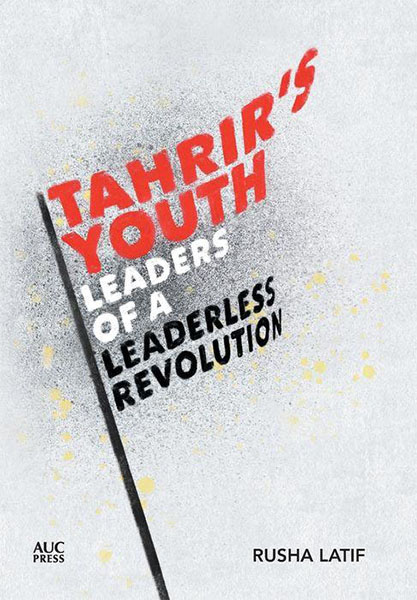
Yes, the revolutionaries of Tahrir and the Arab Spring have been defeated. But if one can master the narrative, the book clarifies, they need not be defeated forever.
Abd El-Fattah advances two remarks which are interrelated and have to do with the power of language. The first highlights the need to nurse and preserve the expressive quality of language while the second instantiates the first through the power of writing. The two remarks are, in a nutshell, strategies that have to be successfully deployed in order to reverse the initial reversal and unseat the counterrevolution. They are no less revolutionary than harnessing the courage requisite for bringing down a dictator. Because writing articulates the narrative of the revolution, it is then self-evident that writing is a step ahead of merely expressing for the sake of expressing because it is instead a writing geared towards materially changing the world. Writing breaks the monopoly of counterrevolutionary narratives. That monopoly pretends to the triumph of its world order and justifies the false omnipresent. Lucid and translucent writing lays bare the pretention and brings down the counterrevolution. Hence how zooming in on each remark is not only useful but decisive for the success of social revolutions worldwide, not just in Egypt.
For Abd El-Fattah, one has to be genuinely alarmed when people start communicating in GIFs and Emojis. Instinctively, one knows something is wrong when impersonal and prearranged drawings serve as replacements for texts. After spending a five-year stint in prison, he immediately notes young people’s chronic dependence on ready-made drawings with which they pretend to be communicating. Gradually, the massive use of GIFs and Emojis erodes the capacity to distinguish variations in basic communication, let alone the complex thinking needed to engage with the world. Differently put, complex thinking evaporates from the radar, leaving the stage for the counterrevolutionary lies to assume the form of historical truths. With this assault on language and the capacity to communicate, the possibility for revolutionary change — understandably impossible without advanced communication skills — becomes next to nil.
In a tweet dated April 4, 2019, Abd El-Fattah notes: “When did it become OK for adults to communicate mostly in emojis and gifs?” (p. 269) In this context, electronic devices and platforms such as Facebook or Twitter are no longer neutral or impersonal means of facilitating the exchange of ideas, the way propaganda would have it. Because they encourage laziness and shield people from the task of filtering through meaning, the ease of accessing Emojis and GIFs restricts one’s choice to a few clicks on a custom-made list that presumably covers the field of possible expression. Gradually, standardized thinking sets in, enforcing the counterrevolutionary project.
This first remark about a communication emptied from the capacity of sense-making is connected with the second remark: the unparalleled assault on the written word. After reversing his parole in September 2019, Abd El-Fattah’s jailers refuse him (among other necessities) books, newspapers, and magazines. The injunction has not been there in previous prison sentences. He asserts that the counterrevolution has become mortally afraid of the written word. In his prosecution hearing, Abd El-Fattah announces:
…it’s clear that this goes beyond a denial for security reasons, but rather reveals a phobia or a hatred for the written word. This phobia has unfortunately taken hold of the Egyptian state and has spread through it. I see no logic or reason for my detention except the written word, especially since my arrest coincided with that of prominent academics and researchers, and preceded that of journalists known for their professional integrity.
Free of personal accusation or private animosity toward prison wardens, Abd El-Fattah’s rendition of his plight facilitates making the case for a general, deeply troublesome scenario that applies to only one writer or activist. In incarcerating activists along with journalists and academics, a trend in exercising authority is set. Readers find that local or Egyptian authoritarian practices are part and parcel of the global order, bent on fighting all that which contradicts the false omnipresent, the one single narrative heralding the temporary triumph of the current world order. Incarcerating people with the caliber of Abd El-Fattah underlines the censorship of an alternative narrative, the one that uncovers pretensions towards eternalizing this world order, though it is immune to ageing and death. These people are in prison because their writing shakes up not only the Egyptian state but the entire false omnipresent that governs the contemporary world. Differently put, the fact that similar seditious writings keep emerging at all proves that Capital’s presumption for the infinite through a happy-go-lucky consumerism is a chase of phantoms.
Appalling standards of learning, therefore, are not just mere unfortunate accidents. They serve repressive regimes in the latter “war on meaning.” (259) But what is overlooked in Abd El-Fattah’s discussion is how even repression which has taken unprecedented levels since September 2019 (the reversal of the probation and the prosecuting orders with the open renewal of imprisonment without court sentences) underlines the fact that the Egyptian state is facing the wall. Despite the innumerable pledges and Herculean efforts to build a viable economy, el-Sissi’s government has been unable to reverse negative interest rates. The credits el-Sissi has accumulated since the start of his tenure have made it impossible to restructure old debts and draw a positive value on the balance sheets. There is hope then, even in defeat. For the regime leads a frenzied policy that maniacally censors all dissenting voices because it cannot find a formula to break the antinomy of valorization of de-valorization. It is not in the nature of the world order, for which el-Sissi in the final analysis is answerable, to rule exclusively by repression. Quite the contrary, el-Sissi’s international backers want Egyptians to be fooled into thinking that they are happy.
Several Arab Spring revolutionaries nevertheless entertain the erroneous and debilitating presumption of a world order that champions authoritarian rule for its own sake, that is, in contradistinction to the real movement of history which specifies that repressive orders serve in uncovering mortal and profound crises. Even when he does not explicitly suggest the mortal crisis, Abd El-Fattah’s thinking is rapidly propagating toward the conclusion that it is the international order which is faltering, and repressive state policies are just one course of action the same faltering order takes in order to cheat the certainty of its faltering.
Concerning the widespread circulation of GIFs and Emojis, Abd El-Fattah observes that they constitute an unprecedented attack on the faculty of critical thinking. State animosity against learning in general and writing in particular serves in aborting articulations of a narrative that counters those pushed by the state and its subservient media. The impoverishment of learning and the attack on writing illustrate how the counter-revolution has been thorough but not complete. Academics cannot miss the degeneration and contempt for writing in unstated but highly encouraged state policies. It has been years since students in Arab Spring countries have been graduating despite the fact that their skills in writing are questionable.[2] The Covid-19 pandemic has accelerated this erosive habit with distance learning and a new set of exceptional regulations that favors passing and graduating at the expense of acquiring essential skills. Thus, the assault on the written word seeks the infinite, and Abd El-Fattah reads the situation for what it is: “…an attempt to produce clones unthinking and incapable of debate.” (p. 328) In paying attention to the ravages committed in the education systems and the infantilizing practices that both states and tech giants facilitate, one starts to wonder how revolutionaries expect a different outcome than the triumph of the counterrevolutionary order!
But Abd El-Fattah’s text reminds readers that history makes perfect sense and activists should embrace the historical arch of la longue durée. Only by abandoning one’s narcissism, neurosis, anxieties, and putrefactions, can activists register the scale of what they are up against: reversing the reversal, uncovering the lies, and shedding off the alienation. Near the closing of You Have Not Yet Been Defeated, particularly in Abd El-Fattah’s second address to the RightsCon in 2017 from which the title of the collection is taken, and in: “The Birth of a New World Order” series, readers find the author coming crystal clear with respect to the repressive character of the Egyptian regime. He seems to be asking: why waste one’s time exposing the wrongs perpetrated by the delegate? For El-Fattah, like Assad in Syria or Bouteflika in Algeria, el-Sissi is a delegate of those who hunt for surplus value.
As a tech specialist, Abd El-Fattah knows that tech giants can favorably alter the equation for the cause of revolution should they decide to demonetize certain, if not all, transactions. The valorization of valorization — that is, reducing every exchange to an exchange value — shatters both exchange and value. When the governing dynamic of human life becomes valorization for its own sake, one knows that the monster has broken loose and disaster is uncontainable. This explains why readers find Abd El-Fattah certain that his fate and the fate of revolutionaries like him have been sealed by a liquified form of power, that of the exchange value. He is clear that power no longer resides in Cairo, Davos, or Washington. If only because it is a practical exercise in revolutionary method, You Have Not Yet Been Defeated should be hailed as the bible for revolutionaries of the 21st century, the way Victor Serge’s Memoir of a Revolutionary (1951) served early- and mid-twenty century revolutionaries.
1. Teodor Shanin, 1986. Russia, 1905-07: v. 2: Revolution as a Moment of Truth.
2. I speak from my own experience as a university professor in Algeria, and from interaction with colleagues from the region, including Morocco, Tunisia and Egypt. Certainly, the phenomenon is less acute in the Gulf monarchies, France, and Europe. But colleagues from these parts report that critical thinking is seriously eroding. Teaching conditions during the pandemic and the regulations that governed special measures taken during the past two years unfortunately revealed that mastering the skill of writing has become an unaffordable luxury, or so it seems to me.



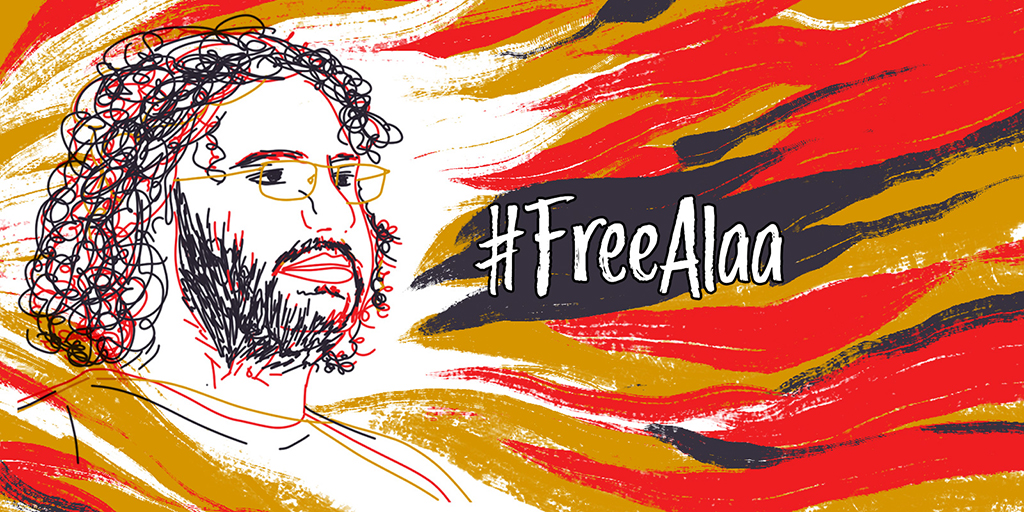

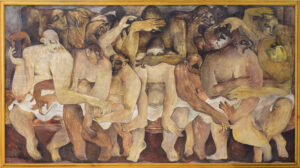





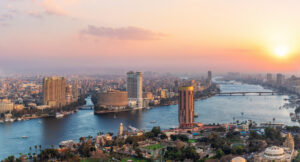



















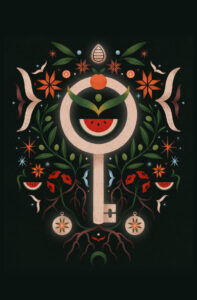

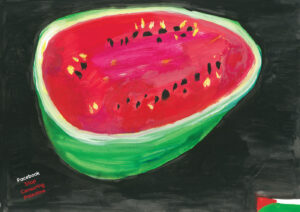

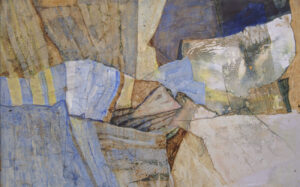















































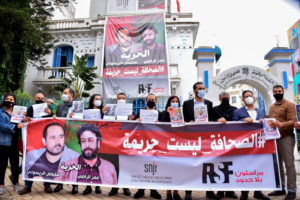


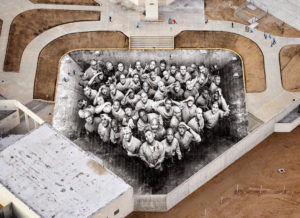

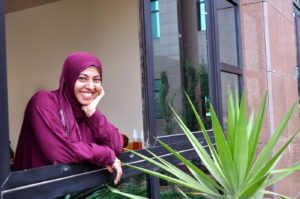














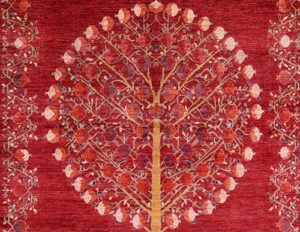
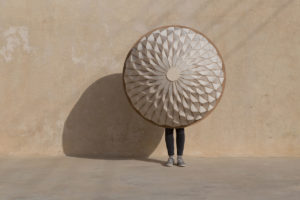






















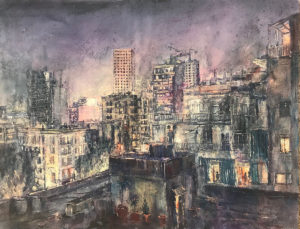





Thank you for this most useful analysis of the political agenda to undermine language, clarity and and critical thinking.